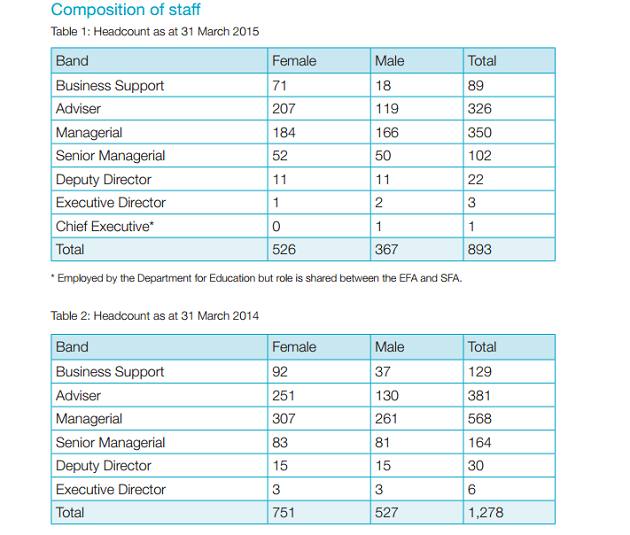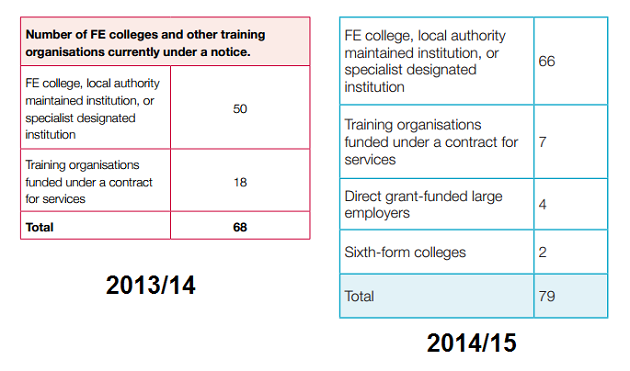The Association of Employment and Learning Providers (AELP) and the Association of Colleges (AoC) have welcomed a consultation the government hopes will mark the start of a promised crackdown on fake apprenticeships.
The Department for Business, Innovation and Skills (BIS) is asking for examples of bogus apprenticeships as it aims to ensure that all use of the title is subject to the same legal requirements, such as the one-year minimum duration to which all government-funded apprenticeship providers must adhere.
It is hoped the consultation, due to launch this week at some point, will add to the government’s case to give apprenticeships the same legal protection as a degree in the Enterprise Bill, due to come before Parliament in the autumn.
An AELP spokesperson said: “The consultation will be welcome and worthwhile if it leads to improvements in the quality of non-regulated provision.”
Stewart Segal, AELP chief executive, said the genuine apprenticeships which attract government support were “very well regulated”.

He said: “The SFA regulates the programme through a very tight contract supported by a detailed set of rules and regulations. This is then checked on certification and Ofsted reviews the overall quality of the programme delivered by providers.
“Clearly there are some programmes that are delivered outside of this structure and it is this part of the market that needs to be the focus of the consultation.”
However, he warned: “We must also avoid over-regulation of programmes that are based on an apprenticeship approach using a combination of on the job experience and off-the-job training.”
Teresa Frith, AoC senior skills policy manager, said: “Having the apprenticeship brand protected will mean that it cannot be abused.

“We must ensure that the quality of apprenticeships is maintained so that young people receive the education and training they require to play a significant part in the workplace.”
She added that colleges worked closely with employers to prevent any misuse of an apprenticeship at the employer end.
It is not known how long the consultation, which is aiming to collect evidence in support of protecting the term apprenticeships, will last.
Skills Minister Nick Boles said: “We will leave no stone unturned when it comes to promoting apprenticeships as a route to a rewarding career.
“This government has made sure that apprenticeships are jobs with high quality training lasting more than year.
“We don’t want their status to be undermined by those unscrupulously passing off short courses as apprenticeships. We are inviting employers and apprentices to join us in stamping out abuse of the system.”
BIS has already collected examples of abuse of the term apprenticeship, which it published today.
In one example, it claimed a provider contacted a London-based employer to offer “fully funded” IT training it described as an apprenticeship — despite the fact that it only planned to provide six days of training across the entire year.
FE Week has asked the SFA for the identity of the provider, whether it was receiving funding and if so what for.
BIS also gave examples where the “apprenticeship” provider never even visited the learner’s workplace or where the provider refused to hand over candidate applications to employers when they tried to look for an alternative provider.

 providers use to support increased retention of learners on programmes are always a good thing. We know that many providers use such interventions regularly.
providers use to support increased retention of learners on programmes are always a good thing. We know that many providers use such interventions regularly. David Corke (right), director of education and skills policy for the Association of Colleges, said: “Anything which helps students to stay on the right education and training programmes will be of interest to colleges.
David Corke (right), director of education and skills policy for the Association of Colleges, said: “Anything which helps students to stay on the right education and training programmes will be of interest to colleges.




 “I believe that the risks the SFA faced in the financial year 2014 to 2015 were generally managed effectively, with the exception of the management of capital grants to colleges which resulted in payments in advance of need and the qualification of these accounts.
“I believe that the risks the SFA faced in the financial year 2014 to 2015 were generally managed effectively, with the exception of the management of capital grants to colleges which resulted in payments in advance of need and the qualification of these accounts. 
 its existing partnership with fellow grade two Ofsted-rated Paston Sixth Form College (PSFC), in North Walsham.
its existing partnership with fellow grade two Ofsted-rated Paston Sixth Form College (PSFC), in North Walsham. It was overseen by the FE Commissioner Dr David Collins (pictured left) and Sixth Form College Commissioner (picture below right) during the first five months of this year.
It was overseen by the FE Commissioner Dr David Collins (pictured left) and Sixth Form College Commissioner (picture below right) during the first five months of this year. 2015 to 2016.”
2015 to 2016.”